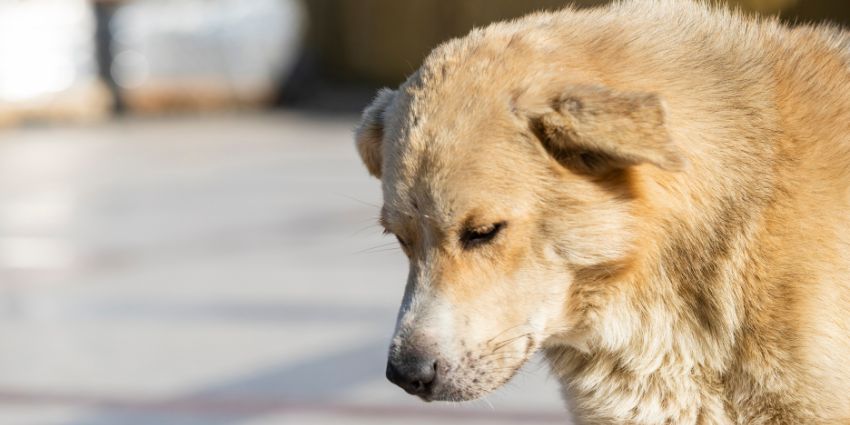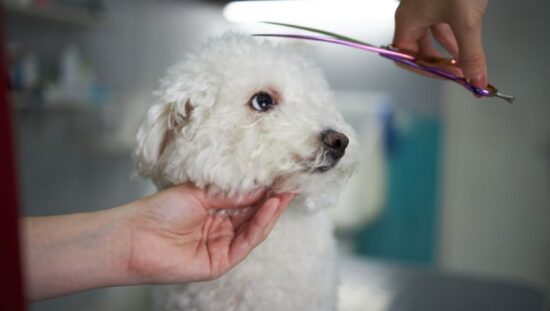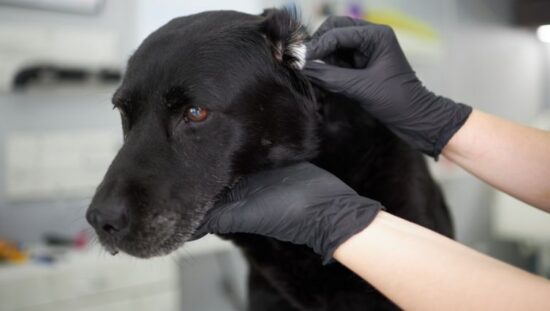Welcome to our blog dedicated to helping you provide the best care for your older dog! Our guide covers everything you need to know, from keeping them healthy to making their home comfortable.
We’ll share easy tips and tricks to help your aging dog feel good and stay happy. Let’s ensure your furry friend has the best golden years ever!

Tips On How To Take Care Of Your Senior Dog
It is crucial to understand when your furry friend has become a senior dog to give them the best care possible. The golden years begin around 7-10 years old for smaller breeds like Chihuahuas and Shih Tzus, and 5-7 years old for larger breeds like Saint Bernards and Great Danes.
Physical and behavioral changes may happen as dogs age. Some of these conditions include decreased energy levels, joint stiffness, dental issues, changes in appetite, and sleep disturbances. To provide your older dog with the best care, you will need to understand these changes.
I. Watch for Common Senior Issues
As your dog gets older, it may develop different health issues that can affect its quality of life. Arthritis happens often in older dogs and makes their joints hurt, so moving around becomes harder. This causes swelling and damage to the joints, making them stiff, painful, and less mobile. You might notice your older dog having trouble standing up from lying down, being careful on stairs, or not wanting to play like before. To ease their discomfort, you can give them a soft place to rest and avoid too much activity.
Along with arthritis, older dogs often have dental issues. Over time, plaque and tartar can build up, leading to gum disease, cavities, and mouth infections, which can make eating painful. Pay attention if your older dog starts chewing differently or avoids hard food, as it could signal dental problems. Regular dental check-ups and cleanings are important to keep their mouth healthy and prevent serious issues.
Talking to your vet is important to make sure your dog gets the right care, which could mean medicine, special food, or exercises made just for them. Your vet will also recommend the best way to take care of your older dog’s teeth and gums, so they can keep eating well and staying healthy.
II. Spend Time with Your Senior Dog
Even though your dog is older and moves slower, they still enjoy having you around. It’s important to spend time together because it makes your bond stronger and makes them feel happy and loved. You can do simple things together like going for a relaxed walk in the park, giving them a gentle brushing, or just sitting together on the sofa. These moments are really special for your senior dog, and they also bring joy to you.
Additionally, spending time with your older dog helps them feel less lonely and bored. Doing things together also keeps their brain sharp and active, which is important for staying healthy as they age.
III. Make Sure They Get Regular Exercise
Even though your senior dog is not full of energy, it’s still really important to make sure they get regular exercise. We need to move our bodies to stay healthy – the same goes for our furry friends! Doing activities like short walks, swimming, or playing gently can help keep their muscles strong. Plus, it prevents their joints from getting stiff and painful, which can happen as they get older.
It’s super important to be careful, though, and not push them too hard. Just like how we have to be careful with our bodies, we need to be gentle with theirs too. So, pay attention to how they’re feeling and change their exercise plan as needed. If they seem tired or sore, it’s okay to take it easy. The goal is to keep them moving and happy, without pushing them too hard.
IV. Feed Your Older Dog a Healthy Diet
As your dog ages, their nutritional needs change, so they need a different diet to keep them healthy. You can find special dog food for older dogs with higher levels of vitamins, minerals, and joint-supporting nutrients like glucosamine and chondroitin, to help their joints and bones stay strong. It’s also a good idea to give them smaller meals more often, which helps with digestion and stops them from gaining too much weight.
You could always talk to your vet to get advice on the best food for your older dog. They can help you figure out what will keep your dog feeling their best. Just like we need to eat healthy to stay strong, it’s important to feed your older dog the right food to keep them healthy too.
V. Monitor Their Weight
Monitoring your older dog’s weight is important because many senior dogs tend to gain too much weight. This extra weight can worsen problems like arthritis, heart issues, and diabetes. To keep your older dog healthy, check their weight regularly and make sure they’re not getting too heavy. You might need to adjust how much food they eat or how much exercise they get to help them stay at a good weight.
Be careful with treats because they can add extra calories that your older dog might not need. Instead of giving them lots of treats, try to choose snacks that are lower in calories but still have good stuff in them. If you notice your older dog’s weight changing a lot, it’s a good idea to talk to your vet. They can help figure out if there’s a health issue causing the weight changes and what you can do to help your dog stay healthy.
VI. Groom Your Senior Dog Regularly
As dogs get older, their fur and skin need more attention to stop them from getting tangled or irritated. Brush your older dog’s fur often to get rid of loose hair and keep it from getting knotted, especially behind their ears and under their legs. Trim their nails regularly so they don’t get too long and bother them, and check their ears to make sure they’re not dirty or infected. Bathing them regularly with a gentle shampoo made for older dogs will help keep their skin clean and soft. These simple things can make a big difference in how your older dog feels every day.
VII. Keep Your Ageing Dog Comfortable
It’s really important to make sure your older dog feels comfortable at home. You can give them a cozy place to rest, by putting soft, comfy bedding in a warm and quiet part of your house where they won’t be bothered. Beds made of special foam can also help their joints feel better and ease any pain they might have from arthritis.
Make sure their living space is safe too. Keep it tidy and free from things that could hurt them. And make sure they can easily get to their food, water, and favorite spots to relax. Pay attention to how they act and what they like, and change things around if they need it.
VIII. Accommodate Your Dog’s Changing Needs
As your dog ages, they might need some changes around the house to help them move around more comfortably and safely. For example, if they have trouble getting onto the bed or sofa, you can put in ramps or steps to help them. These can also be helpful if they have problems with their joints or moving around.
Use non-slip mats or rugs to stop them from sliding on shiny floors and avoid falls. Keep their food and water bowls, toys, and beds all on one level to make it easier for them. Be ready to fix anything that might be hard for your older dog, so they can still do things by themselves and feel good about it.
IX. Don’t Skip Vet Visits
We already learned that regular visits to the vet are really important for keeping an eye on your older dog’s health and catching any problems early. Your vet will check them over carefully and suggest things to keep them healthy or treat any issues they find.
It’s a good idea to book check-ups at least once or twice a year, or more if your dog has health problems already. If you notice your dog acting differently, eating less, or having trouble moving, tell your vet about it. This way you can help them live a longer, healthier, and happier life.
Conclusion
Taking care of an older dog means paying attention to what they need as they get older and making changes to keep them comfortable, safe, and healthy. Monitoring their weight, making sure they get enough exercise, keeping them clean, and making their home cozy are all super important for making sure they stay happy as they get older.
By paying attention, you can spot the problems your older dogs might have. Talking to vets and getting their advice can give you a better idea of how to handle typical issues that come up as dogs get older.
Also, the bond between a pet and its owner only grows stronger with time. With careful thought and care, you can make sure your older dogs keep living happy lives, full of love and friendship.



